A few weeks ago, Max posted about the new Maguey Melate subscription box. It raised a bunch of questions for us about how to create a successful subscription program and how you go about developing a business model that can work for everyone – the producer, the importer and of course the subscriber. We thought it would make a good case study and asked Dalton Kreiss if he was game to write about the experience and thankfully he agreed.
A New Way to Experience the Spirit of Agave at Home
If you understand the underlying beauty of mezcal, it’s not difficult to see why a subscription-based mezcal club would make even more sense than the dozens of wine clubs out there.
While we weren’t the first to come up with the mezcal club concept, our club is unique. There are at least four other ‘agave spirit clubs’ that exist or have existed , one of which Mezcalistas already highlighted way back in 2014.
But when we took a closer look at these clubs, it became clear they were either simple discount clubs or retailers that took readily available bottles off their shelf and shipped them to you. Although some of these clubs were sending quality spirits, it was evident that the magic of mezcal wasn’t fully being embraced with each bottle. A label by itself can capture some of the process details and give the bottle a rustic or Aztec sentiment, but as true mezcal fans know there’s too much context behind each artisanal spirit for a paper label to deliver the whole story.
Being based in Oaxaca with huaraches on the ground and direct connections with the mezcaleros, we are positioned to offer something a little more comprehensive and unique.
After a year of hard work, our grand vision is what has finally come to fruition. A club that doesn’t just ship existing brands, but works directly with independent producers to bring exclusive small-batch spirits right to your door, while simultaneously delivering the needed context to understanding the people, process, and agave behind each bottle.
Although we were naive in realizing how challenging this vision would be, here is why we had to try:
- Artisanal agave spirits are about exploration and discovery

True artisanal mezcal embraces the fact that every agave varietal, producer, and batch is completely unique. The journey into agave spirits is about exploration and discovery much more than it is about finding the ‘best mezcal’. Even if it was possible to re-order the exact same bottle with the exact same taste as is the case with more industrialized mezcal, you would be missing out on one of the grandest phenomena that make this spirit so exciting. A new limited edition small-batch spirit to try each month captures this perfectly.
2) It’s an experience

Many mezcal lovers, like Tom Bullock, author of Experience Mezcal, have pointed out that mezcal is an experience more than a physical product. When a 500 year old art form is so rich with culture, history, tradition, ecosystems, and process variables, it would be a shame not to capture and deliver all the background information with each bottle. An online subscription club allows us to bring the rustic distillery to life, showcasing the character of each mezcalero and uncovering all the fun facts behind the featured agave and process. It’s like visiting a palenque (or the next best thing to it) from the comfort of your living room.
3) It’s social

Lastly, this spirit has been a social catalyst since the time of the Aztecs. Whether due to some unexplainable element in the spirit or a cultural behavior that locals passed down from generation to generation, mezcal is in itself culture meant to be shared, discussed, and to bring people together to celebrate life. A subscription club combined with 21st century social media allows us to connect hundreds of people separated by thousands of miles, who are all sharing the same spirit and experience at the same time. I’d say that’s pretty remarkable.
Going from still to door was almost as challenging as going from agave to spirit
Through the startup process, we quickly learned why there were no other clubs that resembled that of our vision. From the bureaucratic complications of CRM, the Hacienda (Mexican IRS), to the US multi-tier-50-state alcohol system, we had our work cut out from the get-go, but where there’s a will there’s a way.
We were six months into our CRM applications and fees before realizing some of our favorite mezcaleros weren’t certified and the logistical and financial burden of certifying potentially dozens of mezcaleros was next to impossible. So we decided to change our company name from Mezcal Melate to Maguey Melate right before announcing our Signature Box launch and committed to selling destilado de agave or agave spirits.
Satisfying various regulatory requirements between the two countries was only the beginning of our struggle. To make this club accessible beyond those who earn 6 figures and drive the newest electric cars, we needed to find a way to make it affordable. The product vision was strong, but the numbers behind it were strongly against us.
Our original subscription concept entailed 3 bottles from one producer delivered monthly or bi-monthly, complete with a beautiful carton box, gifts, and more. As we really began to experience the cost of doing business first hand, the price of this product nearly doubled what we had projected in our business plans.
So we asked our community one at a time, what they cared about most. While a catchy box with gifts and three bottles make a great gift as was the case with our Signature Box, the club needed to focus on quality and price. With 1000 boxes already in production and 9 batches of fine agave spirits already purchased, we pivoted our entire product line at the 11th hour to strip some of those extras out and simply offer top of the line agave spirits in the leanest way possible.
But even so, imagine an artisanal spirit that costs the producer $17 USD a liter to produce in one of the poorest states of Mexico. To give you perspective, large batch vodka and whisky costs about $1 per liter to produce and it’s already inside the US. If you’re familiar with the plant and process behind artisanal agave spirits, you won’t have any difficulty understanding this difference.
Then there were all the details that were of course overlooked on paper. First, the concept of volume discounts is unheard of by the vast majority of artisanal rural producers. If one bottle costs $500 pesos, 100 bottles will cost $50,000 pesos. There is no wholesale price. Then there’s all the small things that add up. Who knew the inside of the bottle needed to be washed with the spirit it would later host? Furthermore, why didn’t someone tell me when you bottle 40 liters of clay pot Tobaziche, about 10 liters are left in the bottling machine’s tubes and filters? It would turn out that these little nuances were the least of our worries.
Not only are many of our mezcaleros not certified, many don’t have a tax ID number for invoices, resulting in us paying a whopping 30% tax on our entire sale price at the Mexican border. Uncle Sam tacks on another 10-15% to cross the border and then California needs another 3% to enter their state. In a traditional model, the distributor would take 40% margin and a retailer would take another 35%. Here’s what the overall unit economics look like and why we nearly accepted that a small-batch exclusive club for the world’s most expensive spirit featuring uncertified producers just wasn’t feasible.
$10 purchase price for 375 mL
- $6 dollars for bottle, cork, labels, box, bagasso molds, and bottling
- Shipping pallet to border (minimum $350 per pallet)
- Customs and custom broker fees (minimum $250 per pallet)
- 30% Mexican export tax
- 12.5% US federal excise tax
- Shipping to distributor warehouse (minimum $300 per pallet) / (1 – .4) distributor gross margin
- 3% state excise tax
- Shipping to retailer (minimum $200 per pallet) / (1 – .35) retailer margin of 35%
- $15-30 shipping to customer
- 6% paypal fee
- E-commerce state sales tax (2019 law)
It was looking like our club would need to cost minimum of $115 per ONE monthly 375mL shipment and that’s just to cover our variable costs. This price wouldn’t even begin to cover operational expenses, marketing, and maybe someday some profit.
So we spent several months analyzing our supply chain looking for solutions to these challenges. We were absolutely in love with our vision by this point and refused to let it go. We registered ourselves as the producers of destilado de agave to start expensing out the 30% Mexico export tax. We found a distributor that charged a monthly fee instead of a per case markup. Then we partnered with a friendly retailer that would fulfill our orders per batch rather than per unit. It all sounds so easy in hindsight.
All of these tweaks really flipped the conventional unit economics of a bottle on its head. If we wanted to pay a mezcalero an extra $10 per 750 mL to get a really special outstanding varietal, it no longer meant we had to raise our final price to the consumer by $40 to cover all the taxes and markups along the way, as those fees were not fixed or per unit rather than per dollar.
Finally, we had to address the most expensive component of the entire cost structure: direct to consumer shipping. It was unsettling to see the shipping companies bring in more revenue than the mezcaleros we watched work so hard, so we opted to ship bi-monthly (instead of monthly) to lower our cost about $13 per bottle. This also helped reduce some of the packaging expenses.
Still, there was no money left over for one of the most significant functions of a successful company, marketing and sales. Without a ton of marketing, we would never get the customers we need to justify our distributor subscription, and spending a ton on marketing meant higher prices and less customers.
So we decided the best option was to combine our club experience and marketing into one. Rather than keep the experience exclusive to customers, it would only benefit our mission and our reach to put everything on social media. Pictures, videos and information could be captured and prepared during our frequent visits to meet with the mezcaleros and work on our mission project, thus resulting in a three birds-one stone affect.
With our supply chain and vision firmly in place, we are now free to explore Oaxaca and beyond to find the best tasting spirits and the most authentic mezcaleros who represent what our project is all about. As you can imagine, this was by far the most rewarding aspect of our endeavors. Moreover, by negotiating better deals with distributors and retailers, we were in a position to continue paying the mezcaleros fair prices for their hard work and avoid negotiations for volume discounts which was critical to achieving our mission focused goals.
So what is the final outcome?

Barril clay pot distillations from local legends, 20 year crystal-aged Cuixes from under discovered talents, Tobala recipes from the Sierra Norte’s red soil, triple distilled Pechugas from Puebla, and an endless line up of diverse agaves from maestros that will truly encourage you to slowly sip your spirits as to prolong the moment when the bottle is empty and the limited edition batch is gone for ever.
A mission as strong as the spirit it showcases
But this club isn’t just about Maguey Melate and access to delicious spirits. You will be supporting the sustainability of a decentralized network of mezcaleros and the tradition of keeping this spirit artisanal, as well as opposing a consumer trend much larger than the boundaries of mezcal.
We here at Melate believe in business social responsibility, whether it’s at the corporate level or the mom and pop shop, and there is no greater opportunity to practice what you preach than when it comes to the new booming mezcal industry sourced in Mexico.
Mezcal production in the hands of many independent small business owners, especially in Oaxaca where the land is primarily privately owned by the farmer or the village, is symbolic of the 1900’s revolutionary age where a middle class can thrive and be proud of having some degree of control over their personal economic success. That’s something we believe in both as individuals and young entrepreneurs.
A quick lesson in Mexican history reveals a country drenched in foreign and internal exploitation from the age of the Spanish empire, to the era of Porfirio Díaz, and continues today with several industries like the fruit export business. For 500 years, raw treasures have been extracted from this beautiful piece of land at the benefit of a concentrated few, while giving very little back to the people who reside here. Of course it happens all over the world, but it is especially evident throughout Latin America.
As a foreign startup who believes there is a middle ground between healthy capitalism and philanthropy, we plan to play a humble role in opposing this trend of concentrated power driven by the faster-cheaper economy.

Our business model, which pays the mezcaleros fairly and does not bind them to contracts, distributes the commerce to many and helps get their name out there to the world (in fact their name is front and center on the label, while our brand is more of a footnote). But we want to take it a step further to help these mezcaleros solidify their independence for generations to come.
One way we are doing this is by creating a webpage for every mezcalero we encounter, complete with contact info, maps, images of their operation, and what varietals they offer. Locals and tourists will have one more tool for finding them to do business, and at the very least, they will receive the recognition they deserve for their contributions to artisanal agave spirits. Simultaneously, we will be bringing them periodic export business through our club and online business.

Furthermore, we have been inspired by visionaries before us like Sombra and one of my personal favorite brands, Vago, to encourage sustainability best practices on the palenque and to give mezcaleros following best practices some preference in being featured. We are also working with SACRED to donate one Tobala for every box sold to the mezcaleros committed to regrowing their wild agaves.
It’s up to conscious consumers and responsible brands to continue reversing the trends of big business’s pattern of concentrated wealth and de-prioritizing the environment. Through innovation and insightful decisions, it is possible to be socially responsible, profitable, and provide an amazing value to consumers and that’s what we plan to achieve with our Mezcalero of the Month Club. With support, we can be a force for more family owned palenques, more agaves, and more artisanal agave spirits in the US.
Salud!
Dalton
Dalton Kreiss, an entrepreneur who loves mezcal and international culture, is the founder of Maguey Melate. Previously an engineer and project manager for industrial automation, he left corporate at 26 to travel and discover a profitable passion project. Instead, mezcal found him as they say, and the rest is Maguey Melate history.

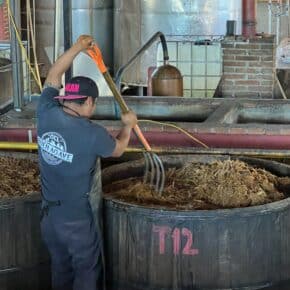
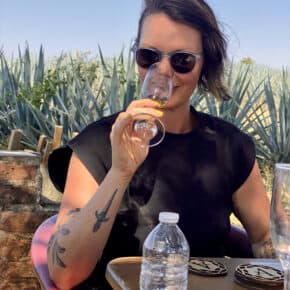
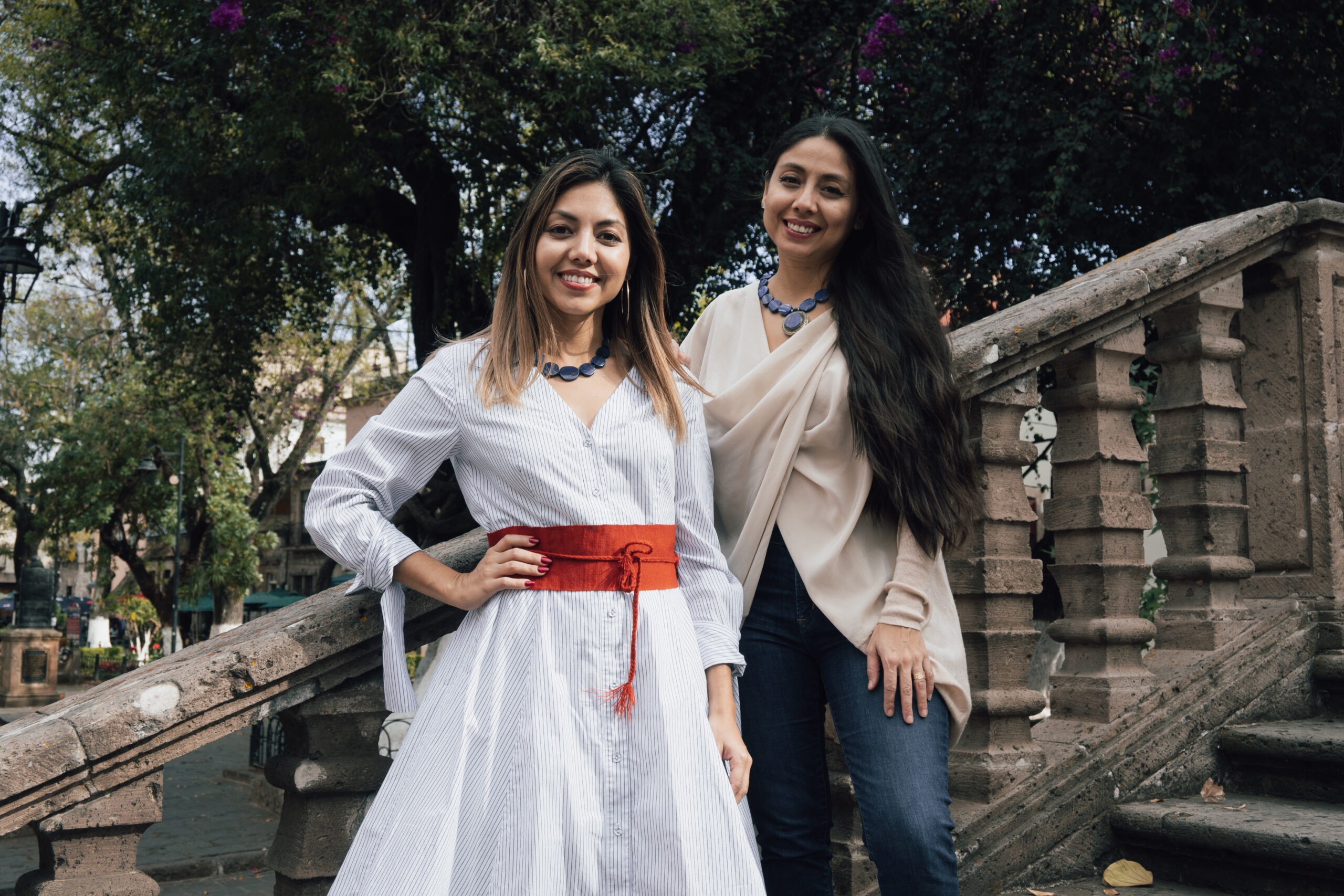
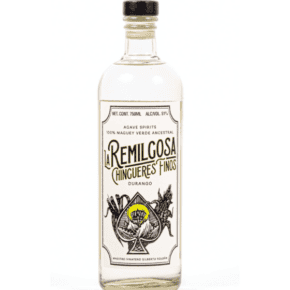
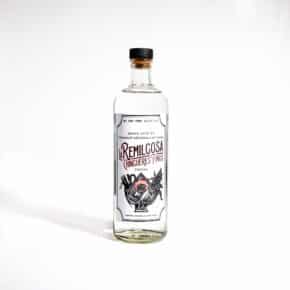
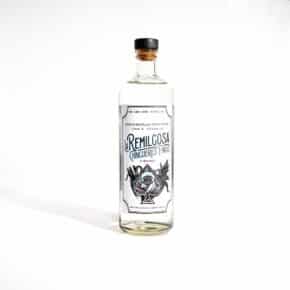






Wow! Beautifully written!
I get so excited and revved up hearing about your mission. I love everything you guys stand for and how you are going about this.
I particularly like: “You will be supporting the sustainability of a decentralized network of mezcaleros and the tradition of keeping this spirit artisanal…”. Sign me up, I’m all about that.
And for what it’s worth, I think Maguey Melate is a more fitting name than Mezcal Melate. It has a better ring to it, and seems to give a nod to the historical nature of mezcal. Your also disassociating yourself from some of those entities that are taking “mezcal” down the wrong path. More power to you!
I hope this project takes off 🙂